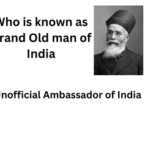Supreme Court on the selection process of Election Commission: Basics Explained

A Constitution Bench of the Supreme Court in Anoop Baranwal vs Union of India unanimously held that the selection of the Chief Election Commissioner(CEC) and the Election Commissioners would be done by a three-member Committee consisting of the Prime Minister, the Leader of the Opposition (or the leader of the largest opposition party in Parliament), and the Chief Justice of India.— and in case there is no such leader, the leader of the largest party in the Opposition in the Lok Sabha. The Court, thus, altered the present mode of selection, where the CEC is appointed by the President, acting on the advice of the Prime Minister.
The ruling will go long way in bringing about greater credibility and impartiality to the Election Commission and this will ensure the neutrality of the Election Commission.
Sukumar Sen was the first Chief Election Commissioner of India.
V S Ramadevi, was the only woman to head the Election Commission.
LEARNING FROM HOME/ WITHOUT CLASSES / BASICS
The electoral system is based on adult suffrage, whereby every citizen who is not less than 18 years of age can vote. (Art326).
There is single-member territorial constituencies that elect a single representative by a simple majority vote.
Before Anoop Baranwal vs Union of India judgment Under Article 324(2) of the Constitution of India, the President of India is empowered to appoint the Chief Election Commissioner and the Election Commissioners.
The Election Commission of India, interalia, is vested with the power of superintendence, direction and control of conducting the elections to the offices of the President and Vice-President of India. Commission also has the powers of superintendence, direction and control of the elections to both Houses of Parliament; both Houses of the State Legislature.
It delimits the constituencies for elections (Art 82) and allots the numbers of seats to each of them.
It advises the President or the Governor on all electoral matters, including questions relating to the disqualifications of the members.
The Chief Election Commissioner and the two Election Commissioners draw salaries and allowances at par with those of the Judges of the Supreme Court of India.
The Chief Election Commissioner or an Election Commissioner holds office for a term of six years from the date on which he assumes his office.
First CEC: Sukumar Sen
State Election Commissions
- The State Election Commission has been entrusted with the function of conducting free, fair and impartial elections to the local bodies in the state.
- Article 243K(1): It states that the superintendence, direction and control of the preparation of electoral rolls for, and the conduct of, all elections to the Panchayats (Municipalities under Article 243ZA) shall be vested in a State Election Commission consisting of a State Election Commissioner to be appointed by the Governor.
- Article 243K(2): It states that the tenure and appointment will be directed as per the law made by the state legislature. However, State Election Commissioner shall not be removed from his/her office except in like manner and on the like grounds as a Judge of a High Court.
In Kishan Singh Tomar,2006, case Supreme Court ruled that powers of the State Election Commission in respect of conduct of elections is no less than that of the Election Commission of India in their respective domains. These powers are, of course, subject to the law made by Parliament or by State Legislatures provided the same do not encroach upon the plenary powers of the said Election Commissions.




0 Comments